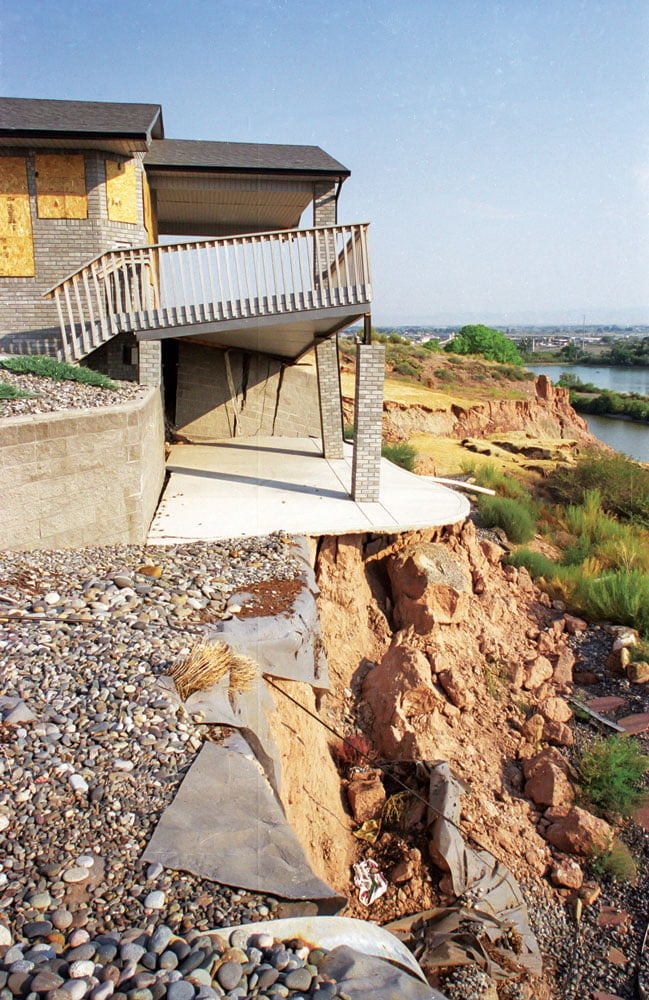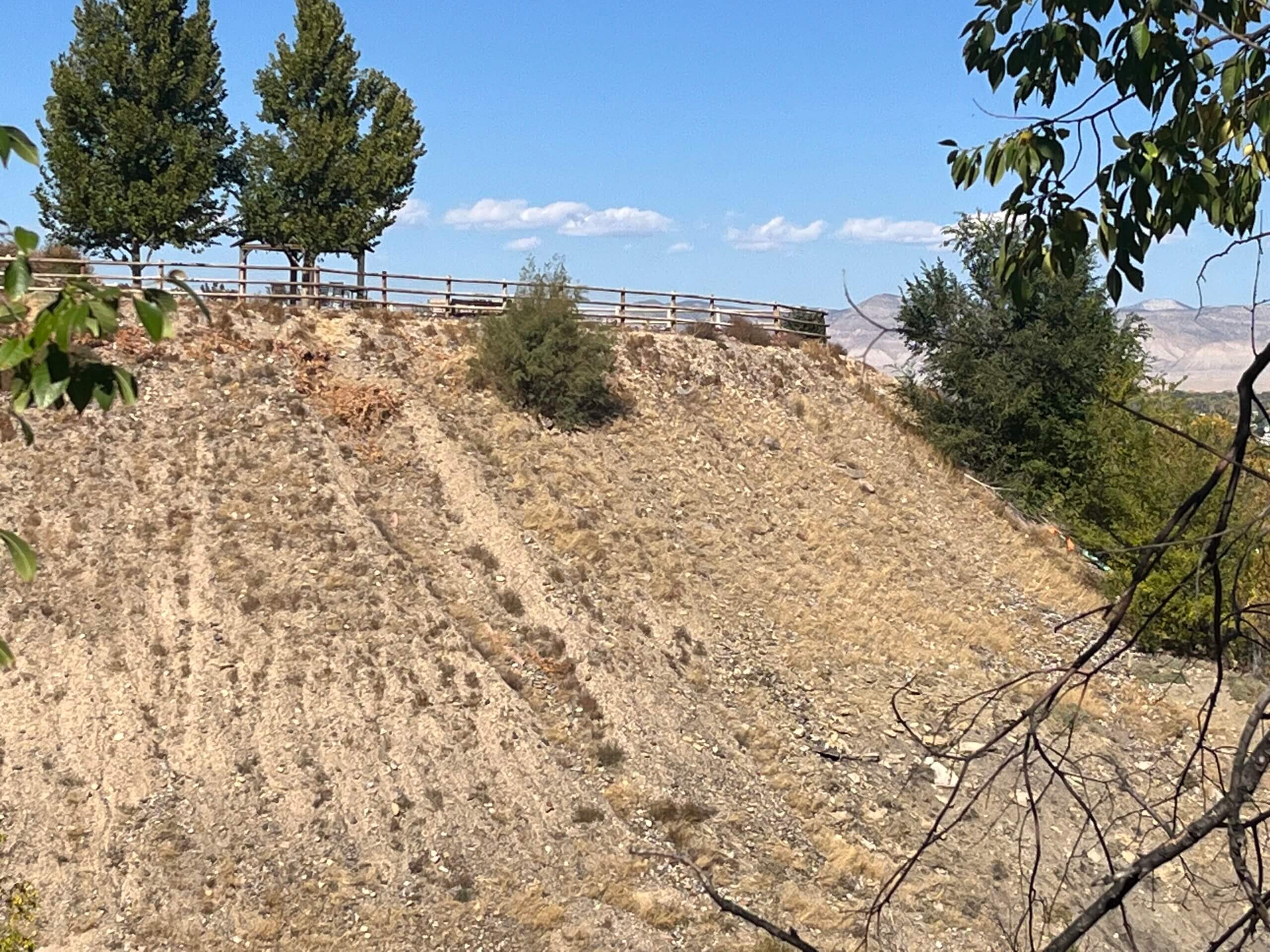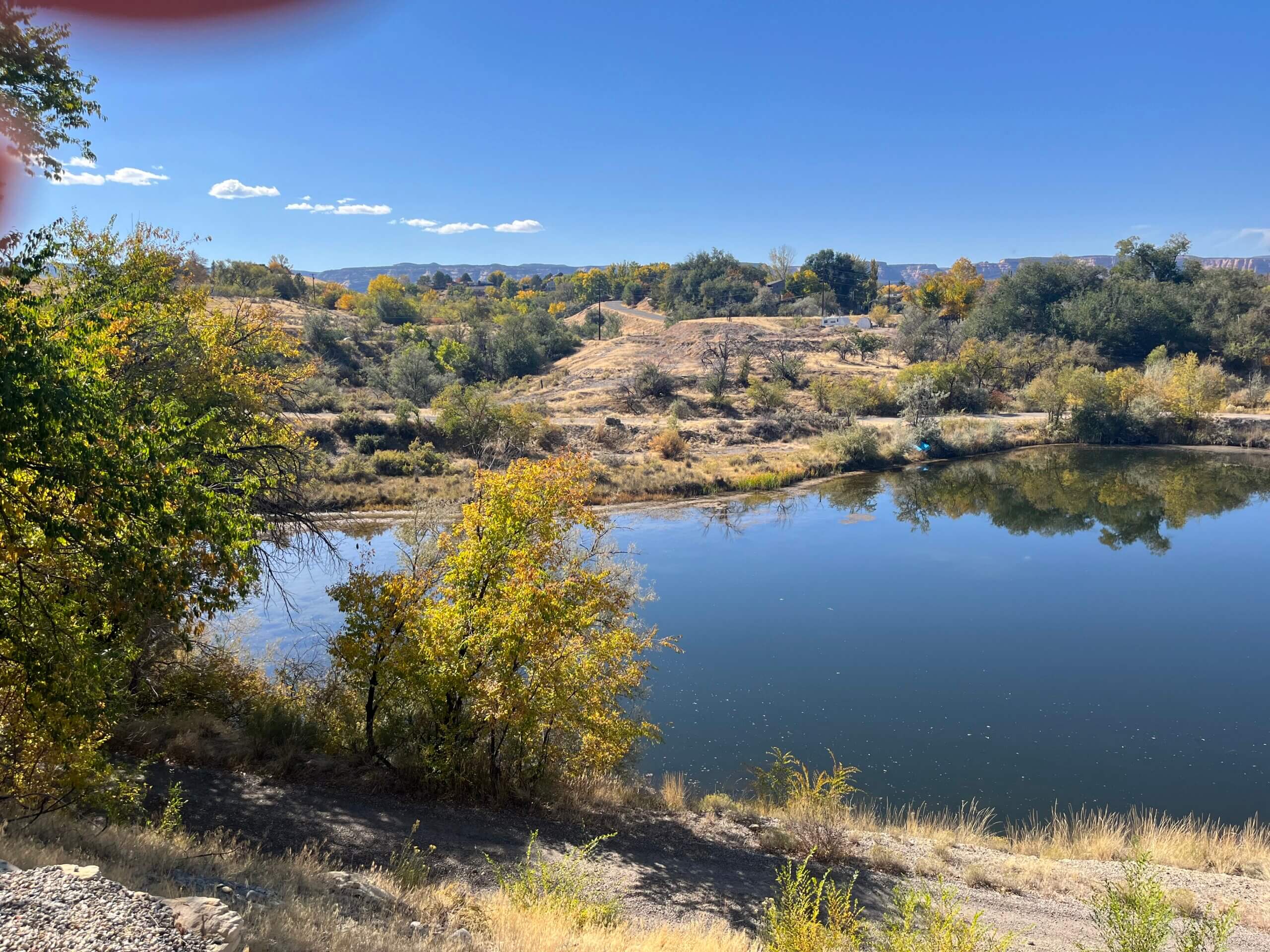
Redlands area residents are concerned that the City of Grand Junction and Colorado Department of Public Health and Environment (CDPHE) have give preliminary approval to build a huge sewage lift station on private land in a geographically unstable area, and they are warning of its potential for failure and environmental catastrophe.
The proposed lift station will replace a 6-foot diameter lift station said to be “reaching the end of its useful life” at the Ridges Subdivision, and consolidate a 4-foot diameter lift station that “is in adequate condition” on Power Road. The proposed budget for this new lift station is currently $7.1 million.
But homeowners in the area contend the new lift station and sewer lines will be built on unstable land, will destroy huge swaths of riparian habitat above Connected Lakes State Park and, in the event of a failure, could lead to huge amounts of raw sewage being dumped into the river.

Residents say the 15-inch diameter inlet line to the new lift station will be routed through a geologically unstable bank, and remind the City that several other river bank cliffs have already slid in the recent past, causing damage to expensive structures: One was south and west of the Redlands Parkway Bridge in which a newly-built home slid off a crumbling bluff towards the river. Another was 38 Road in Palisade, a notoriously unstable roadway that had to be rebuilt in 2015 with special engineering to stabilize the road, and the most recent catastrophe, the slide in a bluff at 29 Road just west of the bridge, that broke a large water pipe that spewed water for days until they could figure out how to shut it off. That slide was across the street from Okagawa Farms, located on Orchard Mesa on a road at the top of the bluff. When asked about the slide last summer, Okagawa employees said if the bluff started crumbling further, they had plans to run out the back door.

Neighbors say all of these slides are par for the course for structures built on unstable bluffs above the river. While their timing can’t be predicted, geographically speaking, slides in these areas are all too predictable.
Using the City’s build-out information, they say a break in the proposed new sewer line would lead to 550,224 gallons per day of raw sewage being poured into the Colorado River.
They also say there is no back-up for this proposed new line in the event of damage. There is no redundancy in the system, so no alternative where someone could just turn a few valves and route the sewage elsewhere while repairs are made.
Glenn Stout, a Redlands resident raising the red flag over this project, said he asked what he thought were valid questions about alternative locations for this line, their costs and why they were rejected. He said as a result the City of Grand Junction and Mesa Count put him on Colorado Open Records Act (CORA) restrictions that made it difficult to impossible for him to get further information about the project.
About 70 residents have signed a petition opposing the project and say it makes no economic or environmental sense, and they are the neighborhood most likely to be affected by potential for odor, noise and loss of property value.



My standing question to all governments is why are we not moving toward converving sewage and garbage into energy instead of becoming locked into electric and the obvious drawbacks of lithium. We would be resolving 3 issues at once. Where is the research? No corporation seems to gain from our converting garbage and sewage into energy….research and development should be advanced.
Grand junction recovers sewer gas into CNG for buses and garbage trucks. The Mesa county landfill is very dry due to desert conditions and does not generate enough methane to recover.
Then there was Animal Control and Coffman Road in Whitewater. It’s your money folks.
Thanks for the reminder about that. It was probably the most expensive geological construction mistake to fix, too. I added an article about it to the bottom of the blog.